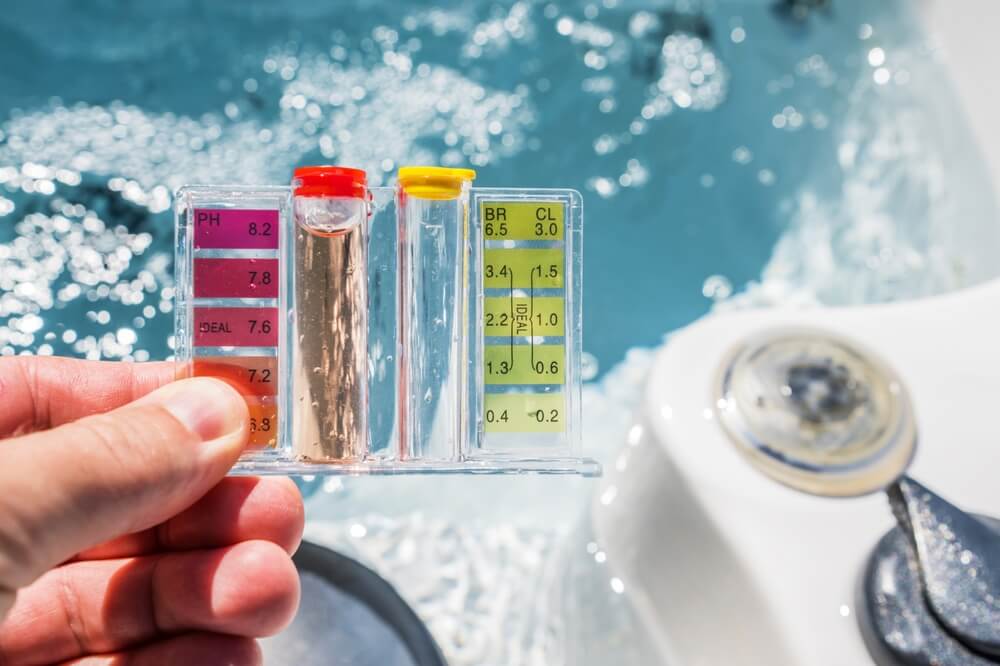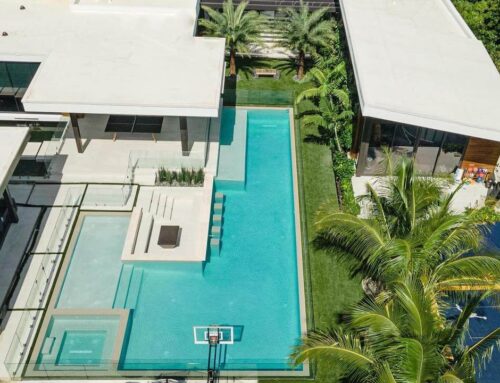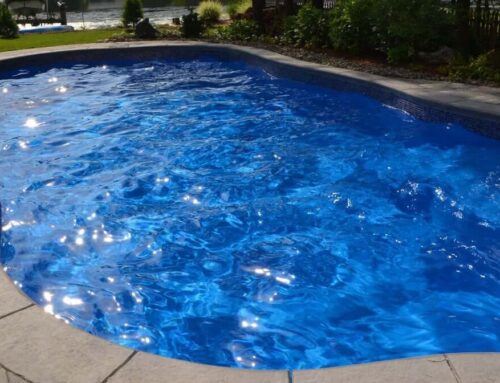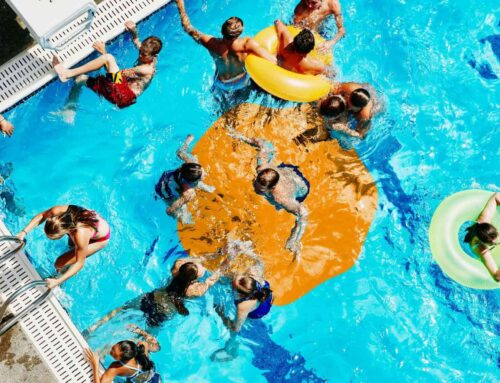There are two kinds of people – those who enjoy swimming in pools and spend all their free time dipping their toes in the water and those who can’t stand swimming pools. Yes, you’ve read that right. Some people don’t like pools, and you won’t see them near one any time soon.
People who don’t like them always have a reason, and there’s always a back story and some bad experience.
For a swimming pool to be enjoyable, you must maintain it properly and ensure everything is in order. Otherwise, you are risking your and the health of your friends and family. And if you need assistance figuring out where to start, we can help you with swimming pool and spa repairs and maintenance In Miami.
The most disliked thing about pools for many people is the smell of chlorine. But that’s not all; some people even have severe reactions to this chemical. However, as we mentioned, you need to take care of every little detail regarding your pool and ensure everything is working correctly. And one of the essential things is to be sure you don’t have high chlorine in the pool.
If you want to know the safe pool chlorine levels and potential signs of too much chlorine in the pool, keep reading this article. We will explain how it looks if the chlorine level in the pool is too high.
What Is Chlorine?
The chemical element chlorine has the atomic number 17 and the symbol Cl. It is an exceptionally reactive element and a powerful oxidizing agent. At room temperature, it is a yellow-green gas.
Currently, chlorine is a crucial ingredient for water purification. These days, chlorination of even tiny water supply is widespread.
Chlorine is typically utilized to eliminate bacteria and other germs in public swimming pools. In most private swimming pools, sodium hypochlorite, or solid tablets, is used instead of chlorine. You probably know what chlorine smells like, but contrary to common perception, chloramine, a chemical product formed by the interaction of free dissolved chlorine with amines in organic compounds such as those in urine and sweat, is the source of the unique “chlorine odor.” It means that we are the reason why chlorine smells the way it does.
As you can see, chlorine is essential to our daily lives, and we can’t imagine our life without it. However, high chlorine in the pool is unsafe and can cause severe side effects and health problems.
Signs of Too Much Chlorine in Pool
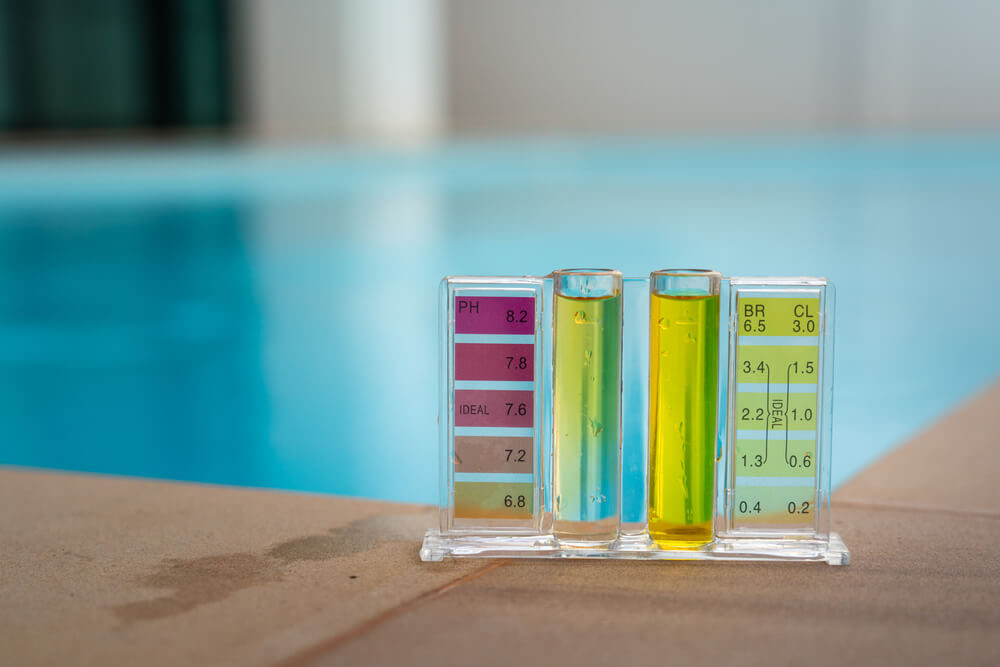
We will focus on too much chlorine in pool side effects and how severe they can be, such as:
- Dry skin, hair, and nails
- Irritated eyes
- Lung sensitivity
- Chlorine burns
- Chlorine poisoning
Dry Skin, Hair, and Nails
In most cases, you won’t have a problem with your skin, hair, or nails while swimming in a pool. However, there’s always a possibility for this to happen, especially if you swim regularly, even if there’s no high chlorine in the pool. You can experience dryness of your skin and hair, and your nails can become brittle. If the levels are high, you can also experience allergic reactions, such as itching and redness. And one almost funny but not pleasant side effect is your hair turning green if treated with bleach.
Irritated Eyes
Chloramine hovers at the pool’s surface because it is heavier than air.
It has a powerful smell; if it goes into your eyes, it could sting and irritate you.
However, this tells us that the water needs better balancing, which is not one of the signs of too much chlorine in the pool – quite the opposite. Although, if there actually are incredibly high quantities of chlorine in the water, your eyes can be affected and burn.
Lung Sensitivity
Both chlorine and chloramine gas can irritate the respiratory system. As a result, imbalanced chlorine in swimming pools may cause side effects like lung inflammation, mainly if you have any prior lung injury, chronic obstructive pulmonary disease, or asthma.
Symptoms of lung irritation can be coughing, wheezing, and nasal discomfort.
Chlorine Burns
Unfortunately, due to mishandling pool chemicals at home pools, many people get chemical burns and end up in hospitals. That’s why it’s essential to handle any chemicals you use correctly and know the safe chlorine level in the pool. Another critical thing to remember is to store any chemical properly in a well-ventilated space.
Chlorine Poisoning
Chlorine poisoning is possible when the chlorine level in the pool is too high. And it happens if a person ingests or inhales the chlorine.
Possible symptoms of chlorine poisoning are clouded vision, blistering skin, burning in the eyes, nose, and throat, difficulty breathing, nausea, and vomiting.
If symptoms persist or worsen, consult your healthcare provider. Getting outside and washing your eyes with water for 10 minutes will help.
How to Know If Chlorine Level in Pool Is Too High?
You may conduct a scent test. For example, walking into an indoor pool area and immediately smelling chlorine is typical.
However, if the smell is particularly overpowering at the pool’s surface and irritates your eyes or airways, the pool’s chemical balance is likely off. Safe swimming pools don’t smell strongly of chemicals.
The pH range for a healthy pool environment should be between 7.2 and 7.8, limiting chlorine’s harmful effects while effectively eradicating bacteria. And the safe chlorine level in the pool has to be at least 1 part per million (ppm). The acceptable range is between 1 and 5 ppm. For instance, 10 ppm chlorine is too high to swim in, making it potentially harmful.
How to Avoid Too Much Chlorine in Pool Side Effects
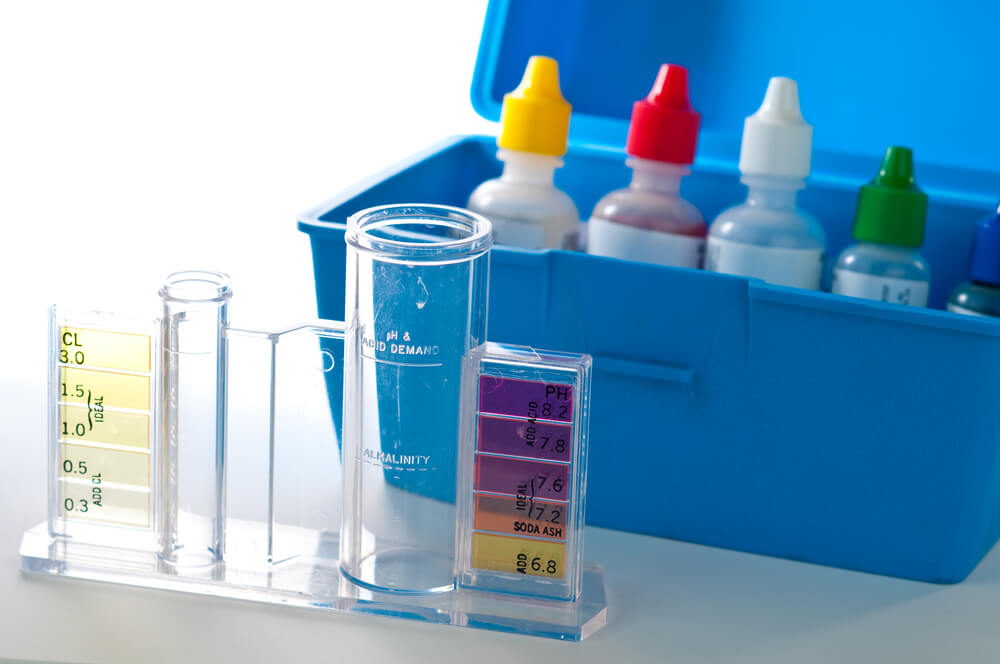
The best way to avoid these high chlorine in pool side effects is to pay attention to the safe pool chlorine levels and check the levels regularly.
Also, you shouldn’t swim if you suspect or know there is high chlorine in the pool until it’s regulated.
It would also be good to always shower after a swim and before you go into the pool. And once you are done, be sure to moisturize your skin to avoid any irritation.
Final Words
The best way to enjoy a swimming pool is to maintain and keep it in pristine condition properly. By doing that, you avoid numerous health risks that can cause you and anyone else using the pool harm.
Sometimes keeping everything in order can be overwhelming as you need to think about many things, and in this day and age where everyone is so busy, it can become challenging. We know that after a long day at work, you only want to go home and dip in your pool without thinking about chemical balances and all that jazz.
If this sounds too familiar, it’s time to ask for help. A team of professionals can help you ease all your worries. Florida Pool Patio is a renowned company that can help keep your pool in immaculate condition. We are here to assist you and advise you on any pool-related topic, and we can also help you if you have some renovations planned. We have numerous satisfied clients that are now enjoying their backyard oasis without a worry on their minds.
If this sounds appealing, contact us and book your consultation today!

